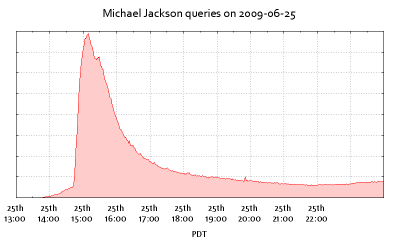Cloudy Computing at Oracle Open World, Day 2
Wednesday, October 14th, 2009I keep forgetting that there are other settings for San Francisco weather than, “hey, that’s really nice.”
Tuesday at Oracle Open World was the single worst climatic day I’ve ever experienced in California, and in fact the heaviest rain the state had seen since 1962. That’s right—the last time it poured like this, the LA Dodgers were still a relatively new idea, the NY Mets were truly new (and truly terrible, losing 120 games their first season), and working class people could still afford to see a baseball game. If you’re wondering why I keep referring to baseball, it’s because I’ve spent most of my time here in the company of Paul Greenberg, a fine fellow traveler who harbors a passion for America’s Pastime and a deep, uncanny lust for the NY Yankees. For better or worse, Oracle Open World + the Bronx Bombers in the postseason = associating enterprise CRM with baseball whenever Paul’s in the room.
Back to the weather: It’s fitting that the skies opened up and drenched us, because Tuesday amounted to Cloud Computing Day at the show. There are plenty of software-as-a-service (are we still calling it that?) vendors at this convention, and in fact they’ve got their own section of the show floor staked out in Moscone South, but the biggest one of all—Salesforce.com—pulled out all the stops. In addition to their sizable booth presence (not in the SaaS area) and excellent T-shirts, there’s a fleet of SFDC-liveried Mini Coopers circling the downtown area. As a special treat, Marc Benioff himself hosted a session in the nearby Yerba Buena Arts Center.
By “special,” I mean there was a massive queue of people waiting in the drenching rain, with no shelter, for a good half hour. By “treat,” I mean SFDC was giving away HD flip cameras to the first 500 attendees, which probably helps explain the queue. To be fair to myself, though, I didn’t know about the camera until after I was indoors, so my soaked-to-the-skin experience was all about seeing what Marc would have to say in Larry Ellison’s back yard.
If I’m honest, I must say that there was little news to be had at the event, at least for people who track SFDC at all closely. Marc modified his message to play better for the enterprise crowd that comes to OOW, many of whom are less interested in SaaS than his typical audience, and the demos were compelling for those who hadn’t seen them before. As always, Marc brought his considerable force of personality to bear, and made a strong case for cloud computing. He was respectful of his host (a company that has a cloud product of its own) and didn’t step on toes, though I felt the overall effect was toeing the line. SFDC makes all its bones on the cloud, whereas Oracle devotes only a relatively small amount of its efforts in that direction; to make that strong case at the show of somebody who is comparatively weak in that area is bordering on poor taste. Note that I said bordering; Marc and his team stayed classy, but controversial enough for me to point it out.
There are numerous companies here using the appearance of unrest as their marketing approach, arguably with less class. They cover a range, from businesses I’ve never heard of to Microsoft SQL Server, all taking turns on the streetcorner with placards, prisoner costumes, and the rhetoric of a World Bank protest to generate interest. It’s such a common theme this year that I wonder if there was a planning meeting with Oracle to plan it. Phrases like “Better Dead than Red” (stolen from the McCarthy era), “Encryption Shouldn’t Be a Pain in the App,” and “Stop the Spindle Swindle” are stuck in my head, though I doubt any of the associated companies will follow suit. The use of protest imagery by so many organizations dulls the effect of each, so it looks like the sort of picketing you can safely tune out.
On another note, I get a second chance to hear Larry Ellison speak this afternoon, at the 2:45 closing keynote. While it’s too late for me to redeem my Sunday failure (necessary though it was), it will help my sense of accomplishment for the week. More importantly, I get to see one of my idols. Not Larry—Roger Daltrey of The Who will be performing at tonight’s appreciation event. The headliner is Aerosmith, and we’ll also have a shot at Three Dog Night, The Wailers, and Shooter Jennings, but for me it’s all about Rog.
 RSS Feed
RSS Feed